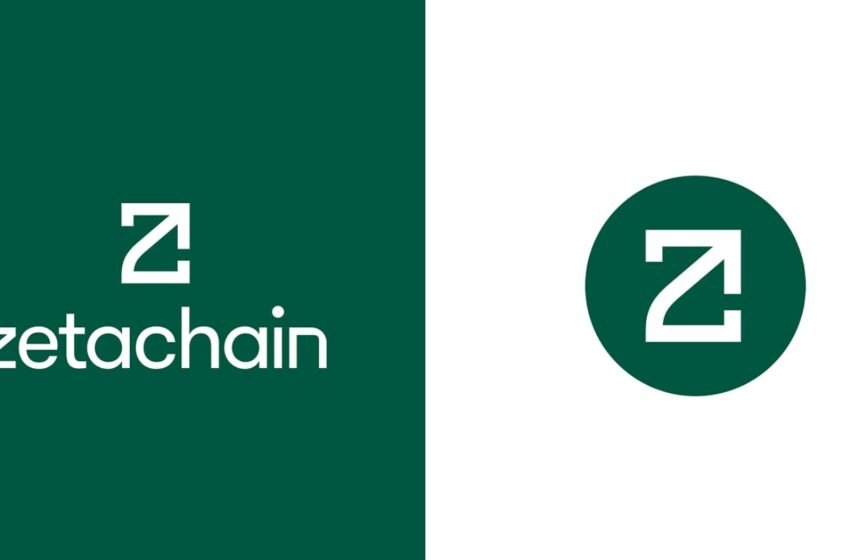Trump’s Double Whammy? Why Section 122 Tariffs Might Also Face
ZetaChain Secures $27M Funding to Pioneer Universal Blockchain Interoperability
(Originally posted on : Crypto News – iGaming.org )
ZetaChain has established itself as a significant layer-one blockchain platform by revolutionizing the field of blockchain technology. ZetaChain, a company with the goal of bringing universal interoperability to the crypto world, has announced the successful completion of an equity investment round, raising an incredible $27 million. This notable achievement has been made possible by a consortium of top-tier participants, including renowned names such as Blockchain.com, Human Capital, VY Capital, and more.
Global Collaborators and Core Contributors
ZetaChain has brought together almost 150 committed contributors from all across the world since its launch in 2021. Respected individuals who have been instrumental in the establishment and development of the blockchain sector are at the center of this ambitious endeavor. Ankur Nandwani, a co-founder of Basic Attention Token and a former executive at Coinbase, Brave, and 0x, is one of the notable key contributors. The core team is further strengthened by the contributions of Panruo Wu, a pioneer in the THORchain community, and Brandon Truong, whose outstanding resume includes positions at BuzzFeed, Udacity, and Yada. The ZetaChain team also includes former workers from a number of well-known blockchain companies, including Cosmos, Ignite, Consensys, and others.
New players only. Exclusive Welcome Bonus of 177% + 77 Free Spins
A Vision of Seamless Interoperability
The revolutionary goal of ZetaChain is to create a new benchmark for blockchain interoperability. The platform aims to give consumers a single location where they can easily manage their assets and data. This amazing capacity eliminates the need for bridges or wrapped tokens by extending to assets and data regardless of their blockchain of origin. This ecosystem easily incorporates smart contract networks as well as non-smart contract chains like Bitcoin and Dogecoin.
The compatibility of ZetaChain’s smart contract layer with the Ethereum Virtual Machine is one of its most distinctive features. Developers may easily deploy Bitcoin smart contracts thanks to this functionality. A tremendous advancement in the cryptosphere, this technological marvel provides the path for Bitcoin users to interact with the larger DeFi environment without any difficulty. A simplified procedure has advantages for developers as well because it enables them to handle a single contract for all chains and reduce possible risks.
Thriving Ecosystem and Testnet Success
The installation of over 27,000 dApp contracts on the platform demonstrates how lively and successful the ZetaChain ecosystem is. A wide range of decentralized applications, including cross-chain DeFi, NFTs, universal web3 protocols, social networks, identification solutions, and even gaming protocols, are included in this dynamic ecosystem. Over 1.7 million people have participated in the ZetaChain testnet, which has resulted in over 13 million transactions being successfully executed.
New players only. Exclusive 111% Welcome Bonus + 111 Free Spins
“ZetaChain’s purpose is to simplify managing assets and data across multiple blockchains, which remains a complicated and fragmented process that’s hindering hundreds of millions of new users joining the web3 ecosystem,” emphasized Ankur Nandwani, a core contributor to ZetaChain. “Our EVM-compatible cross-chain smart contracts alleviate these issues by allowing decentralized app developers to build services that are faster, more secure, and easy to use.”
A New Chapter in Blockchain Evolution
ZetaChain solves the drawbacks of traditional cross-chain solutions since it is built on the solid foundations of the Cosmos SDK and the Tendermint Consensus. It defeats centralized trust paradigms and guarantees increased security and a low-trust environment. ZetaChain’s groundbreaking Proof-of-Stake blockchain architecture sets the way for a new age of blockchain interoperability by embracing the ideals of transparency, verifiability, and decentralized functionality.







 Bitcoin
Bitcoin  Ethereum
Ethereum  Tether
Tether  XRP
XRP  USDC
USDC  Solana
Solana  TRON
TRON  Dogecoin
Dogecoin  Lido Staked Ether
Lido Staked Ether  Figure Heloc
Figure Heloc  Bitcoin Cash
Bitcoin Cash  WhiteBIT Coin
WhiteBIT Coin  Cardano
Cardano  USDS
USDS  LEO Token
LEO Token  Wrapped stETH
Wrapped stETH  Hyperliquid
Hyperliquid  Chainlink
Chainlink  Wrapped Bitcoin
Wrapped Bitcoin  Ethena USDe
Ethena USDe  Binance Bridged USDT (BNB Smart Chain)
Binance Bridged USDT (BNB Smart Chain)  Canton
Canton  Monero
Monero  Stellar
Stellar  USD1
USD1  Wrapped eETH
Wrapped eETH  Rain
Rain  Hedera
Hedera  sUSDS
sUSDS  Litecoin
Litecoin  Dai
Dai  Zcash
Zcash  Coinbase Wrapped BTC
Coinbase Wrapped BTC  PayPal USD
PayPal USD  Avalanche
Avalanche  Shiba Inu
Shiba Inu  WETH
WETH  Sui
Sui  Toncoin
Toncoin  World Liberty Financial
World Liberty Financial  USDT0
USDT0  Cronos
Cronos  Tether Gold
Tether Gold  MemeCore
MemeCore  PAX Gold
PAX Gold  Uniswap
Uniswap  Polkadot
Polkadot  Mantle
Mantle  Ethena Staked USDe
Ethena Staked USDe  BlackRock USD Institutional Digital Liquidity Fund
BlackRock USD Institutional Digital Liquidity Fund  Aave
Aave  Falcon USD
Falcon USD  Aster
Aster  Pepe
Pepe  Bittensor
Bittensor  OKB
OKB  Global Dollar
Global Dollar  Bitget Token
Bitget Token  Circle USYC
Circle USYC  HTX DAO
HTX DAO  syrupUSDC
syrupUSDC  Ripple USD
Ripple USD  Pi Network
Pi Network  Sky
Sky  Ethereum Classic
Ethereum Classic  NEAR Protocol
NEAR Protocol  BFUSD
BFUSD  Ondo
Ondo  Pump.fun
Pump.fun  Superstate Short Duration U.S. Government Securities Fund (USTB)
Superstate Short Duration U.S. Government Securities Fund (USTB)  Internet Computer
Internet Computer  Cosmos Hub
Cosmos Hub  POL (ex-MATIC)
POL (ex-MATIC)  Gate
Gate  KuCoin
KuCoin  Worldcoin
Worldcoin  Jupiter Perpetuals Liquidity Provider Token
Jupiter Perpetuals Liquidity Provider Token  Midnight
Midnight  Quant
Quant  NEXO
NEXO  Jito Staked SOL
Jito Staked SOL  Ethena
Ethena  USDtb
USDtb  Binance-Peg WETH
Binance-Peg WETH  Official Trump
Official Trump  Rocket Pool ETH
Rocket Pool ETH  Spiko EU T-Bills Money Market Fund
Spiko EU T-Bills Money Market Fund  Algorand
Algorand  Binance Bridged USDC (BNB Smart Chain)
Binance Bridged USDC (BNB Smart Chain)  USDD
USDD  Render
Render  Wrapped BNB
Wrapped BNB  Janus Henderson Anemoy AAA CLO Fund
Janus Henderson Anemoy AAA CLO Fund